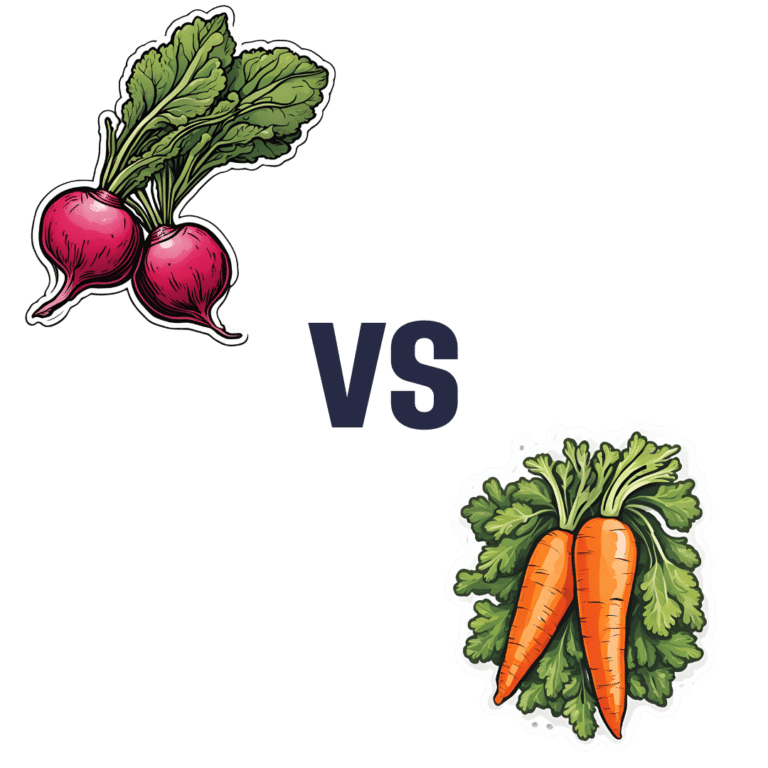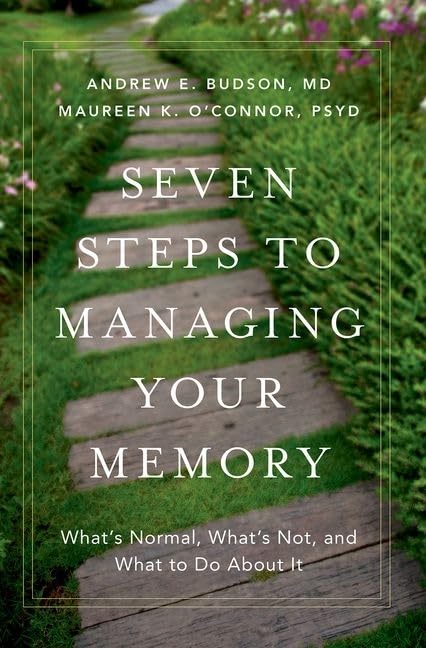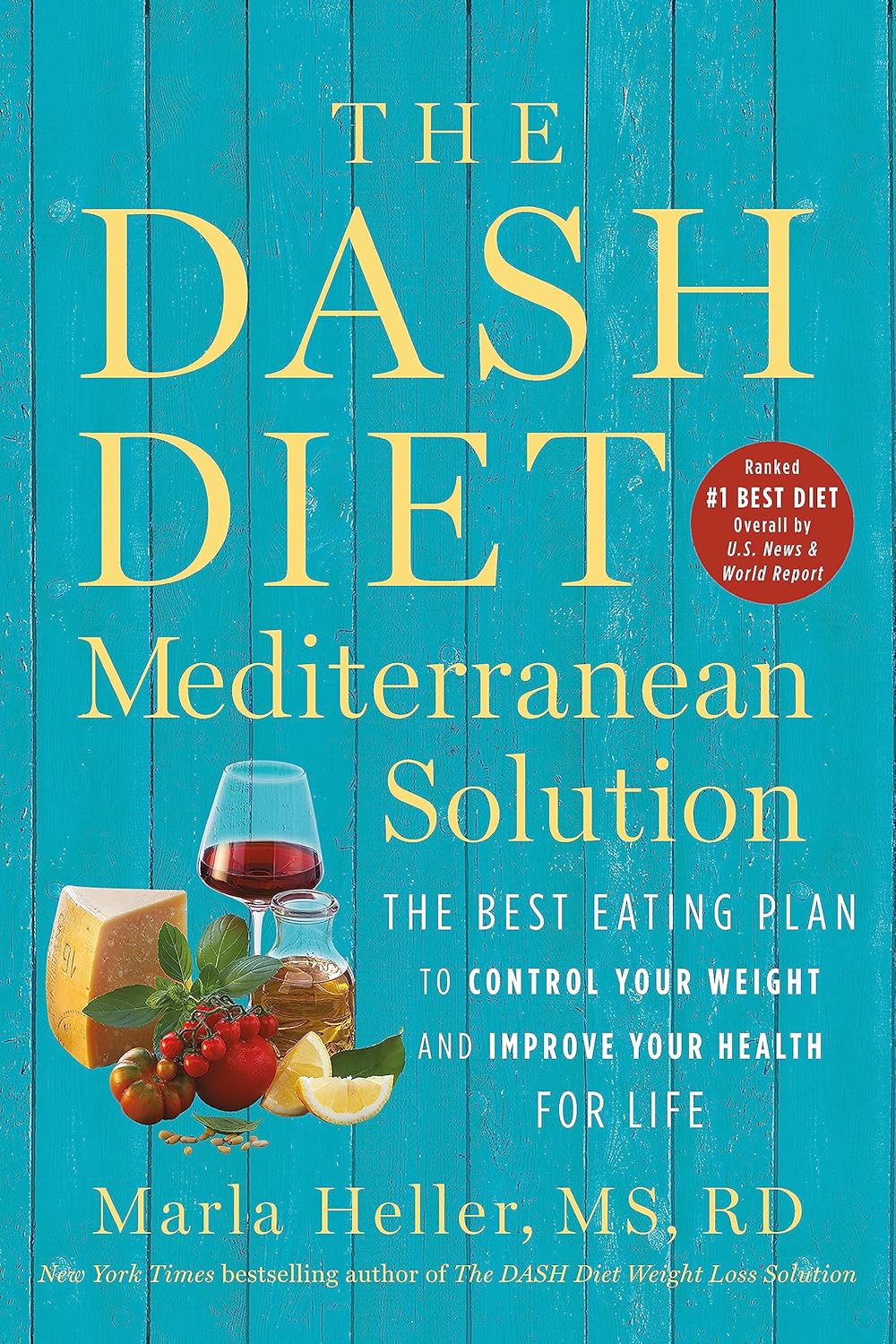
Salmon vs Tuna – Which is Healthier?
10almonds is reader-supported. We may, at no cost to you, receive a portion of sales if you purchase a product through a link in this article.
Our Verdict
When comparing salmon to tuna, we picked the tuna.
Why?
It’s close, and there are merits and drawbacks to both!
In terms of macros, tuna is higher in protein, while salmon is higher in fats. How healthy are the fats, you ask? Well, it’s a mix, because while there are plenty of “good” fats in salmon, salmon is also 10x higher in saturated fat and 150% higher in cholesterol.
So when it comes to fats, if you want to eat fish and have the healthiest fats, one option is to skip the salmon, and instead serve tuna with some extra virgin olive oil.
We’ll call this section a clear win for tuna.
On the vitamin front, they are close to equal. Salmon has more of some vitamins, tuna has more of others; all in all we’d say the balance is in salmon’s favor, but by the time a portion of salmon is giving you 350% of your daily requirement, does it really matter that the same portion of tuna is “only” giving you 294% of the daily requirement? It goes like that for a lot of the vitamins they both contain.
Still, we’ll call this section a nominal win for salmon.
In the category of minerals, tuna is much higher in iron while salmon is higher in calcium. The rest of the minerals they both have, tuna is comfortably higher—and since the “% of RDA in a portion” figures are double-digit here rather than triple, those margins are relevant this time.
We’ll call this section a moderate win for tuna.
Both fish carry a risk of mercury poisoning, but this varies more by location than by fish, so it hasn’t been a consideration in this head-to-head.
Totting up the sections, this a modest but clear win for tuna.
Want to learn more?
You might like to read:
Farmed Fish vs Wild-Caught: Important Differences!
Take care!
Don’t Forget…
Did you arrive here from our newsletter? Don’t forget to return to the email to continue learning!
Recommended
Learn to Age Gracefully
Join the 98k+ American women taking control of their health & aging with our 100% free (and fun!) daily emails:
-
The Exercises That Help Keep Breast Cancer At Bay
10almonds is reader-supported. We may, at no cost to you, receive a portion of sales if you purchase a product through a link in this article.
For women, our lifetime risk of being diagnosed with breast cancer is about 1 in 7, before we take into account any added risk or protective factors.
For men, it’s more like 1 in 556, which again, is before taking into account any added risk or protective factors.
Here’s a good place to start on improving those odds: How To Triple Your Breast Cancer Survival Chances
And for that matter, check out: 8 Signs On Your Breast You Shouldn’t Ignore
And for those concerned (or even just curious) about the pros and cons of menopausal HRT when it comes to breast cancer:
The Hormone Therapy That Reduces Breast Cancer Risk & More ← this is actually very important to understand, as otherwise it’s easy to accidentally self-sabotage and increase one’s overall mortality risk
So, what’s this about exercise and breast cancer?
There are two things to focus on
No, not those.
Well, yes, those, but also: aerobic exercise and resistance training.
A research team (Dr. Alice Avancini et al.) analysed data from 22 randomized controlled trials (total n=968 participants) that investigated the effects of exercise on various pro-inflammatory biomarkers (mostly interleukin variants, but also c-reactive proteins) that are known to increase breast cancer reoccurrence risk.
What they found was:
❝Exercise induced small to large significant reductions in IL-6 (SMD = -0.85; 95% CI = -1.68 to -0.02; p = .05) and TNF-α (SMD = -0.40; 95% CI = -0.81 to 0.01; p = .05) and a trend for a decrease in CRP.
When stratifying by exercise mode, trends toward reduction in IL-6 and TNF-α were observed for combined exercise, whilst changes were not generally affected by exercise program duration❞
The “combined exercise” mentioned?
Aerobic exercise and resistance training.
This is important, because as regular 10almonds readers may remember…
What Your Metabolism Says About How Aggressive Breast Cancer Is Likely To Be For You ← this makes a huge difference to survival chances
So, this study’s findings are very consistent with that, because:
- Aerobic training increases cardiovascular fitness, improving metabolism
- Resistance training increases muscle mass, improving metabolism*
*because muscle “costs” calories to maintain, prompting an increase in metabolism, whereas fat prompts our metabolism to slow, to conserve energy to face the obvious food shortage that must be coming
See also: Stop Cancer 20 Years Ago
Want to learn more?
Here’s the best book we’ve read on breast cancer survival:
The Smart Woman’s Guide to Breast Cancer – by Dr. Jenn Simmons
Take care!
Share This Post
-
Seven Steps to Managing Your Memory – by Dr. Andrew Budson & Dr. Maureen O’Connor
10almonds is reader-supported. We may, at no cost to you, receive a portion of sales if you purchase a product through a link in this article.
First, what this is not: a “how to improve your memory” book of the kind marketed to students and/or people who want to do memory-themed party tricks.
What this book actually is: exactly what the title and subtitle claim it to be: seven steps to managing your memory: what’s normal, what’s not, and what to do about it.
Drs. Budson & O’Connor cover:
- which memory errors can (and usually do) happen at any age
- how memory changes with normal aging, and
- what kinds of memory problems are not normal.
One thing that sets this book aside from a lot of its genre is that it also covers which kinds of memory loss are reversible—and, where appropriate, what can be undertaken to effect such a reversal.
The authors talk about what things have (and what things haven’t!) been shown to strengthen memory and reduce cognitive decline, and in the worst case scenario, what medications can help against Alzheimer’s disease and other dementias.
The style is halfway between pop-science and a science textbook. The structure of the book, with its headings, subheadings, bullet points, summaries, etc, helps the reader to process and remember the information.
Bottom line: if you’d like to get on top of managing your memory before you forget, then this book is for you.
Share This Post
-
The DASH Diet Mediterranean Solution – by Dr. Marla Heller
10almonds is reader-supported. We may, at no cost to you, receive a portion of sales if you purchase a product through a link in this article.
Sometimes, an author releases a series of books that could have just been one book, with various padding and rehashes. In some cases, naming no names
Dr. Mark Hyman, it means we have to carefully pick out the honestly very good and highly recommendable ones from the “you just republished for the extra income, didn’t you?” ones.In this case, today’s book is part of a series of books with very similar titles, and this one seems the most useful as a standalone book
The Mediterranean Diet is still the scientific world’s current “gold standard” in terms of most evidence-based diet for general health, and as we’ve written about, it can be tweaked to focus on being best for [your particular concern here]. In this case, it’s the DASH variant of the Mediterranean Diet, considered best for heart health specifically.
The style is repetitive, and possibly indicative of the author getting into a habit of having to pad books. Nevertheless, saying things too often is better than forgetting to say them, so hey. On which note, it is more of an educational book than a cookbook—it does have recipes, but not many.
Bottom line: if you’d like an introduction to the DASH variant of the Mediterranean Diet, this book will get you well-acquainted.
Click here to check out The DASH Diet Mediterranean Solution, and learn all about it!
Share This Post
Related Posts
-
Scheduling Tips for Overrunning Tasks
10almonds is reader-supported. We may, at no cost to you, receive a portion of sales if you purchase a product through a link in this article.
Your Questions, Our Answers!
Q: Often I schedule time for things, but the task takes longer than I think, or multiplies while I’m doing it, and then my schedule gets thrown out. Any ideas?
A: A relatable struggle! Happily, there are remedies:
- Does the task really absolutely need to be finished today? If not, just continue it in scheduled timeslots until it’s completed.
- Some tasks do indeed need to be finished today (hi, writer of a daily newsletter here!), so it can be useful to have an idea of how long things really take, in advance. While new tasks can catch us unawares, recurring or similar-to-previous tasks can be estimated based on how long they took previously. For this reason, we recommend doing a time audit every now and again, to see how you really use your time.
- A great resource that you should include in your schedule is a “spare” timeslot, ideally at least one per day. Call it a “buffer” or a “backup” or whatever (in my schedule it’s labelled “discretionary”), but the basic idea is that it’s a scheduled timeslot with nothing scheduled in it, and it works as an “overflow” catch-all.
Additionally:
- You can usually cut down the time it takes you to do tasks by setting “Deep Work” rules for yourself. For example: cut out distractions, single-task, work in for example 25-minute bursts with 5-minute breaks, etc
- You can also usually cut down the time it takes you to do tasks by making sure you’re prepared for them. Not just task-specific preparation, either! A clear head on, plenty of energy, the resources you’ll need (including refreshments!) to hand, etc can make a huge difference to efficiency.
See Also: Time Optimism and the Planning Fallacy
Do you have a question you’d like to see answered here? Hit reply or use the feedback widget at the bottom; we’d love to hear from you!
Don’t Forget…
Did you arrive here from our newsletter? Don’t forget to return to the email to continue learning!
Learn to Age Gracefully
Join the 98k+ American women taking control of their health & aging with our 100% free (and fun!) daily emails:
-
Bird Flu: Children At High Risk; Older Adults Not So Much
10almonds is reader-supported. We may, at no cost to you, receive a portion of sales if you purchase a product through a link in this article.
In this week’s news roundup…
Children at highest risk for bird flu
When a new infectious disease comes out, we get used to hearing the usual refrain, “children, the elderly, those with compromised immune systems” are those considered at greatest risk, and therefore first in line for vaccines.
In this case, however, it seems that older adults appear to be rather more resilient to bird flu than children, and it’s noted that early childhood influenza exposure can elicit immune responses that last a lifetime. For those whose lifetime was not curtailed by the initial infection, that means they may enjoy extra defenses now.
You may be wondering whether this headline statement is just a hypothesis based on that, and no, it’s not. It’s a (albeit tentative, like most things in any emerging science, as responses to a novel infection will always be) conclusion based on blood samples from a little over 150 people born between 1927 and 2026 (so, quite a range), and examining the antibodies found therein; adults born prior to 1968 are the ones who are most likely to have been exposed to H1N1 or H2N2 in childhood, resulting in them now having antibodies that work against the H5N1 virus (but still, by all means please do take all sensible precautions anyway!):
Read in full: Older adults might be more resistant to bird flu infections than children, research finds
Related: What you need to know about H5N1 bird flu
GLP-1 Receptor Agonists? They work, but at what cost?
We’re not talking about the side effects this time! Nor even the “what happens if you stop taking it” problems.
Rather, the “cost” in this case is the literal financial cost; out of a selection of weight loss drugs examined, semaglutide (such as Ozempic and Wegovy) and tirzepatide (such as Zepbound and Eli Lilly) were the only ones deemed to not be cost-effective for patients:
Read in full: Semaglutide, tirzepatide not deemed cost-effective obesity therapies despite benefits
Related: Most People Who Start GLP-1 RAs Quit Them Within A Year (Here’s Why)
Inflammation now, brittle bones later
Chronic inflammation is a root cause of many diseases (due in part to how it weakens the immune system, but also because of how the body functions so badly in general when it’s constantly at war with itself, as is the case in chronic inflammation), and it worsens many diseases that it doesn’t outright cause.
In this case, the new science is that chronic inflammation also makes changes to bone density over time.
Spoiler: the changes are not good changes
Furthermore, this holds true for young people also, not just people in the usual demographic that one would expect for brittle bones (especially: older women with untreated menopause, but also just anyone older than middle-aged in general, as most people start losing about 1% of bone density per year after their mid-30s).
Read in full: Inflammation proteins linked to bone density changes over time
Related: The Bare-Bones Truth About Osteoporosis
Take care!
Don’t Forget…
Did you arrive here from our newsletter? Don’t forget to return to the email to continue learning!
Learn to Age Gracefully
Join the 98k+ American women taking control of their health & aging with our 100% free (and fun!) daily emails:
-
An Underrated Tool Against Alzheimer’s
10almonds is reader-supported. We may, at no cost to you, receive a portion of sales if you purchase a product through a link in this article.
Dementia in general, and Alzheimer’s in particular, affects a lot of people, and probably even more than the stats show, because some (estimated to be: about half) will go undiagnosed and thus unreported:
Alzheimer’s: The Bad News And The Good
At 10almonds, we often talk about brain health, whether from a nutrition standpoint or other lifestyle factors. For nutrition, by the way, check out:
Today we’ll be looking at some new science for an underrated tool:
Bilingualism as protective factor
It’s well-known that bilingualism offers brain benefits, but most people would be hard-pressed to name what, specifically, those brain benefits are.
As doctors Kristina Coulter and Natalie Phillips found in a recent study, one of the measurable benefits may be a defense against generalized (i.e. not necessarily language-related) memory loss Alzheimer’s disease.
Specifically,
❝We used surface-based morphometry methods to measure cortical thickness and volume of language-related and AD-related brain regions. We did not observe evidence of brain reserve in language-related regions.
However, reduced hippocampal volume was observed for monolingual, but not bilingual, older adults with AD. Thus, bilingualism is hypothesized to contribute to reserve in the form of brain maintenance in the context of AD.❞
Read in full: Bilinguals show evidence of brain maintenance in Alzheimer’s disease
This is important, because while language is processed in various parts of the brain beyond the scope of this article, the hippocampi* are where memory is stored.
*usually mentioned in the singular as “hippocampus”, but you have one on each side, unless some terrible accident or incident befell you.
What this means in practical terms: these results suggest that being bilingual means we will retain more of our capacity for memory, even if we get Alzheimer’s disease, than people who are monolingual.
Furthermore, while we’re talking practicality:
❝…our subsample may be characterized as mostly late bilinguals (i.e., learning an L2 after age 5), having moderate self-reported L2 ability, and relatively few participants reporting daily L2 use (33 out of 119)❞
(L2 = second language)
This is important, because it means you don’t have to have grown up speaking multiple languages, you don’t even have to speak it well, and you don’t have to be using your second language(s) on a daily basis, to enjoy benefits. Merely having them in your head appears to be sufficient to trigger the brain to go “oh, we need to boost and maintain the hippocampal volume”.
We would hypothesize that using second language(s) regularly and/or speaking second language(s) well offers additional protection, and the data would support this if it weren’t for the fact that the sample sizes for daily and high-level speakers are a bit small to draw conclusions.
But the important part is: simply knowing another language, including if you literally just learned it later in life, is already protective of hippocampal volume in the context of Alzheimer’s disease.
Here’s a pop-science article about the study, that goes into it in more detail than we have room to here:
Bilingualism linked to greater brain resilience in older adults
Want to learn a new language?
Here are some options where you can get going right away:
If you are thinking “sounds good, but learning a language is too much work”, then that is why we included that third option there. It’s specifically for one language, and that language is Esperanto, arguably the world’s easiest language and specifically designed to be super quick and easy to get good at. Also, it’s free!
Do, kial ne lerni novan lingvon rapide kaj facile? 😉
Want to know more?
For ways to reduce your overall Alzheimer’s risk according to science, check out:
Take care!
Don’t Forget…
Did you arrive here from our newsletter? Don’t forget to return to the email to continue learning!
Learn to Age Gracefully
Join the 98k+ American women taking control of their health & aging with our 100% free (and fun!) daily emails:







